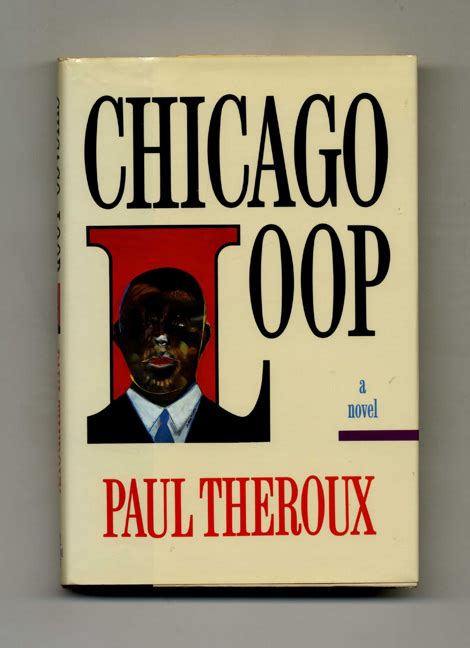Theroux’s Chicago Horror
Paul Theroux is a very good writer, known best for his works on travel and some novels, a few of which has been made into movies. In 1990 he wrote Chicago Loop, a grim work of fiction about a killer’s downward spiral. The primary character is no Raskolnikov; he’s probably more familiar to readers of Brett Easton Ellis. There are no great surprises, no philosophizing in Chicago Loop. Instead, it paints of picture of Windy City anomie through the lies and violence of a “successful” white male predator with a job and a family. Nicknamed the “Wolfman” the murder bites his victims. He drives a BMW and calls it a “beemer.” It’s dark stuff indeed.
The novel, all told, is not successful. A murder, in the middle of the story, serves as a structural pivot point. The first half leans toward the analytic, the critical, with a focus on a psychopath who lies as easily as he breathes. In the second part of the novel, the same lead character is consumed with guilt and images of the murder he committed. The two major sections – character development and exposition – do not hold together neatly. Each on its own, though, has a certain integrity.
Theroux did his Chicago homework assiduously. He’s strong on the city, its neighborhoods, the borders between city and suburb. The faces of the city also ring true. I can imagine Theroux strolling with a notebook and pen, sketching out the setting.
Chicago Loop is a worthy experiment in horror. It also highlights the challenges of the genre: how to maintain reader’s interest in a detestable main character, what does and does not hold attention, how to build and release tension, and the importance of big picture narrative structure. Most of the needed literary components are present. It’s a testament to Theroux’s skill, as is the well-written prose down to the punch of individual sentences.
Theroux, though, does not seem to enjoy the journey as fully as one might expect. He is in the story and out of the story. I felt his dislike of his protagonist. It’s understandable; the man is scum. There is no joy, though, in the protagonist’s comeuppance and little perverse thrill in being along for the ride. I cannot picture Theroux as a fan of horror movies. He is interested in internal dialogues, in values, in rendering some form of explication. That makes him a more thoughtful writer, a more caring writer. Ironically, though, those admirable traits don’t necessarily lead to goosebumps.
David Potash
